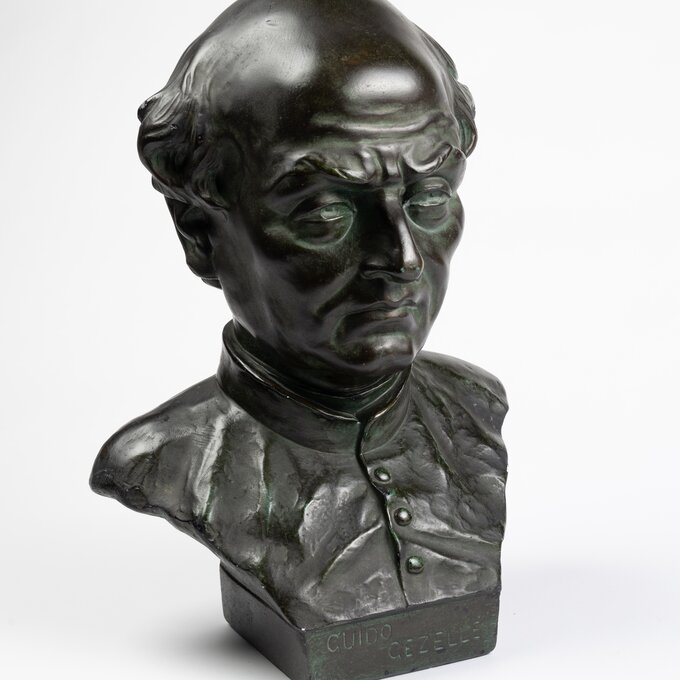Hof der dingen - Bust of Guido Gezelle

Maybe you could call him the first all-round West Flemish person. Priest turned poet, lover of languages, teacher – Guido Gezelle wore many hats and left his mark on plenty of towns across West Flanders.
Born in 1830—the same year Belgium became an independent nation—Gezelle grew up in the beautiful city of Bruges. He first attended a private school before enrolling at the diocesan college Onze-Lieve-Vrouw ter Duinen at just eleven years old. Due to the high tuition cost in Bruges, he completed the last three years of his secondary education in Roeselare. It was there were he began to explore his writing career.
After a short return to Bruges to study theology, Gezelle returned to Roeselare in 1854 – this time as a teacher. He started out teaching bookkeeping and natural history, but it quickly became clear that his heart belonged to languages. He ended up leading the poetry class, where one of his students, Eugeen Van Oyen, became the muse for his famous poem “The Night and the Rose.”
His unorthodox teaching style, however, and his casual way of interacting with his students stirred up controversy. He was transferred back to Bruges, where in 1865 he was appointed as assistant priest at the Saint Walburga Church. Later, in 1872, he was given the same role in Courtrai.
As time passed, Gezelle became increasingly active as a poet and writer – eventually stepping away from his position as an assistant priest altogether. His contributions did not go unnoticed – he even received an honorary doctorate from KU Leuven (1887) and was named a Knight of the Order of Leopold – Belgium’s oldest and highest national order named after King Leopold I.
During the final years of his life, he withdrew from public life and passed away in 1899.
To mark the 125th anniversary of his death, the heritage departments of the cities of Bruges and Courtrai shine a light on the impressive career of one of Belgium's most famous poets.
Discover more at www.guidegezelle.be